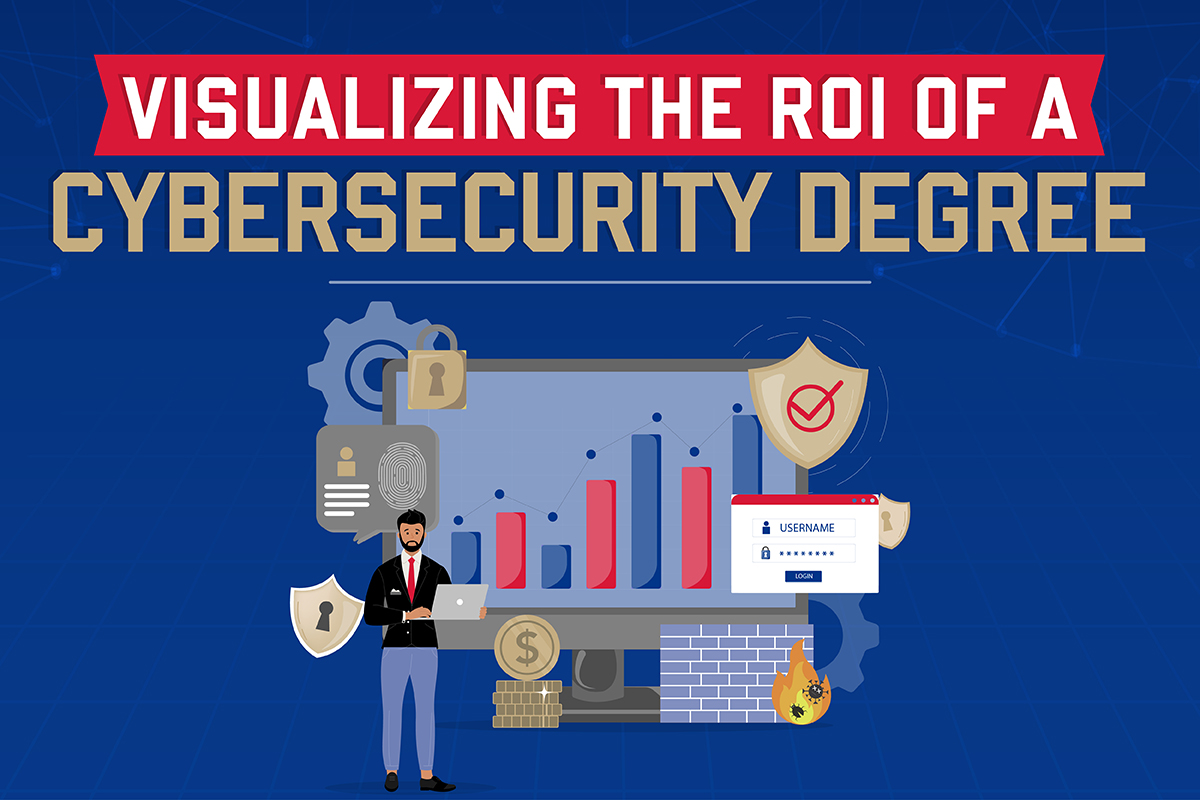What’s a Cybercrime Investigator?
Written by:
University of Tulsa
• Jan 22, 2024

According to the FBI, cybercrime poses a vital threat to public safety and the economic stability of the entire country. Online criminals may use all types of malicious tools and behaviors to steal confidential information, compromising the integrity of businesses, banking institutions, and even government entities. As such, law enforcement bodies must pursue and subdue online cybercriminals just as they would traditional criminals.
Enter the cybercrime investigator, a professional who plays a significant role in law enforcement’s prosecution of online assailants. Anyone who’s passionate about law enforcement but who also gravitates toward computer science may find this to be an immensely rewarding profession. Earning a degree in cybersecurity or a related field can provide the foundational skills needed for long-term impact.
What’s a Cybercrime Investigator?
Fundamentally, the role of the cybercrime investigator is to gather evidence related to unlawful activity in the digital ecosystem. The data that investigators obtain may help with the prosecution of hackers and other online criminals. These investigators may work independently, in consultancy roles, or as part of larger law enforcement teams. Their work may also be used to generate a stronger cybersecurity defense.
What Do Cybercrime Investigators Do?
The exact duties of a cybercrime investigator may vary from position to position. A typical job description will usually look something like this:
- Analyzing the aftereffects of a virus or other forms of cybercrime
- Assisting organizations with data recovery
- Collecting forensic evidence of illegal online behavior
- Conducting interviews with those who’ve been victims of online attacks
- Providing legal testimony and expert witness to other law enforcement professionals
- Briefing law enforcement about cybercrime trends
Cybercrime Investigator Salary and Job Outlook
Anyone interested in a cybercrime investigation role will naturally want to know what kind of salary range they can expect. Additionally, students and job seekers will understandably be curious about the long-term career outlook for the role.
Cybercrime Investigator Salary
The median annual salary of digital forensic investigators is approximately $69,460 as of December 2023, according to Payscale. Meanwhile, the U.S. Bureau of Labor Statistics (BLS) provides data for information security analysts, a role closely associated with cybercrime investigation. The BLS shows a median annual salary of $112,000 for information security analysts.
A range of factors can affect the salary range of digital forensic investigators, including years of experience, level of education, and geographic location.
Cybercrime Investigator Job Outlook
The BLS projects a job growth rate of 32% for information security analysts; the rate is much faster than the average that the BLS projects for all professions. This suggests that positions in information security and cybercrime prosecution are in high demand, offering many opportunities for employment and career growth.
How to Become a Cybercrime Investigator
To succeed in this field, developing the right set of technical skills and obtaining high-level knowledge of the laws concerning online behavior are critical. As such, the best cybercrime investigation professionals tend to have rich educational backgrounds, as well as on-the-job experience.
1. Earn a Bachelor’s Degree
Aspiring cybercrime investigation professionals must earn an undergraduate degree, providing them with foundational skills and core competencies. This may be a degree in criminal justice, cybercrime prevention, cybersecurity, criminology, or a related field. Even a computer science degree can provide a great entry point into the world of cybercrime investigation.
2. Seek Certification
Certification isn’t always required for cybercrime roles, but it can attest to a high level of skill and acumen. A couple of the most notable certifications to pursue include the Certified Information Systems Security Professional (CISSP) and Certified Ethical Hacker (CEH) credentials.
3. Pursue Entry-Level Experience
Entry-level work can be an excellent way to start honing the skills that are necessary for more senior cybercrime investigator roles. Any role at a law firm or law enforcement agency that targets online criminals can be useful, as can corporate information technology (IT) and data security roles.
4. Consider an Advanced Degree
An advanced degree can provide additional skills, including leadership skills, that may be needed for positions of greater responsibility. Additionally, earning a master’s degree in cybersecurity or a related field can open the doors to a more competitive salary range.
Explore Careers Prosecuting Cybercrime
Online crimes demand a serious response from law enforcement; investigators play a major role in shaping that response. One way to prepare for long-term success in this role is to pursue advanced education in cybersecurity. Consider the online Master of Science in Cyber Security from The University of Tulsa, a program designed to provide wide-ranging skills for a prosperous, high-impact career.
Recommended Readings
What Is the Future of Fintech?
Cybersecurity Defense Strategies: The Role of Cybersecurity in National Security
The Importance of Cybersecurity Leadership
Sources:
Indeed, “How to Become a Cybercrime Investigator in 4 Steps”
Payscale, Average Digital Forensic Investigator Salary
U.S. Bureau of Labor Statistics, Information Security Analysts


